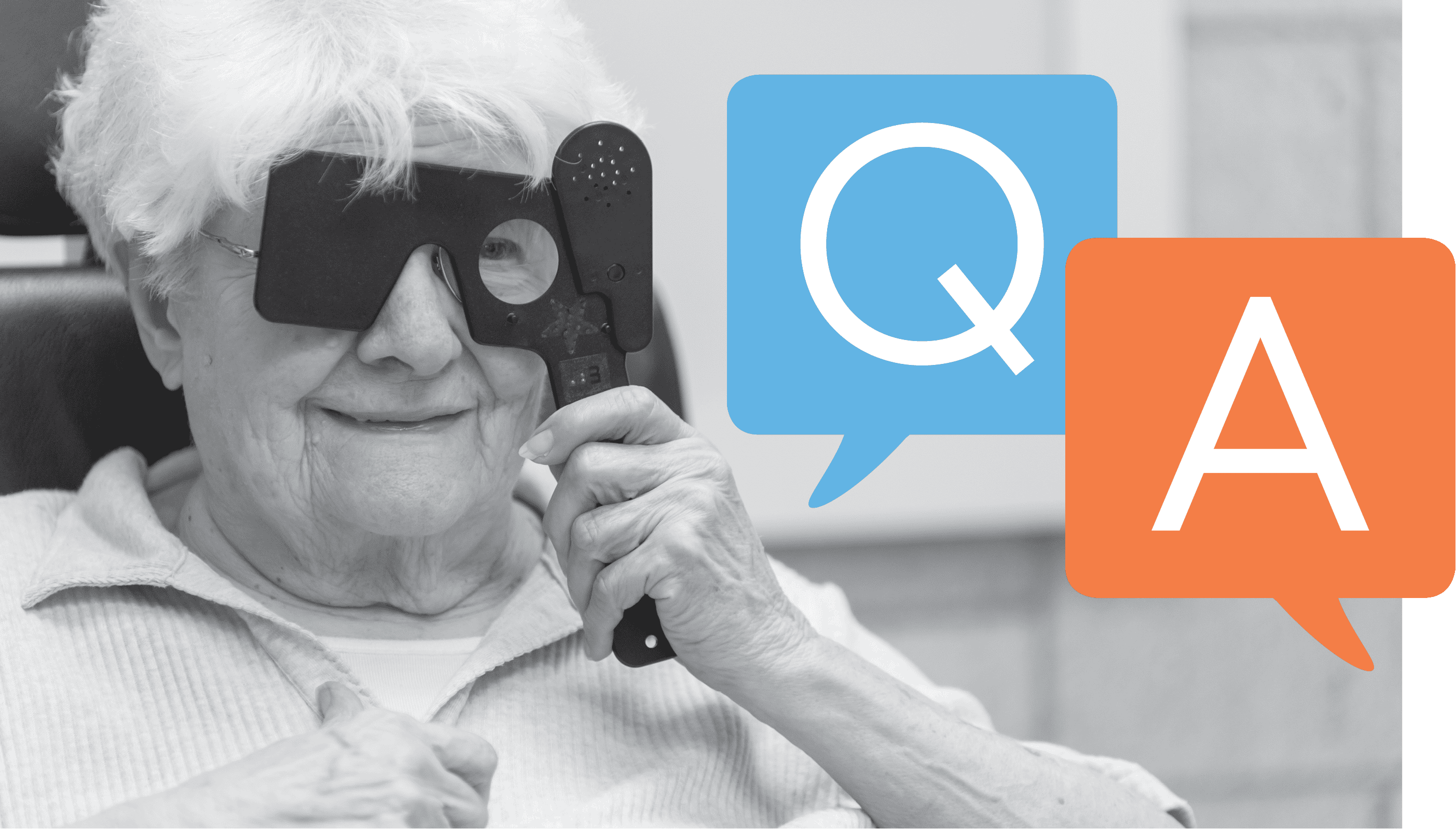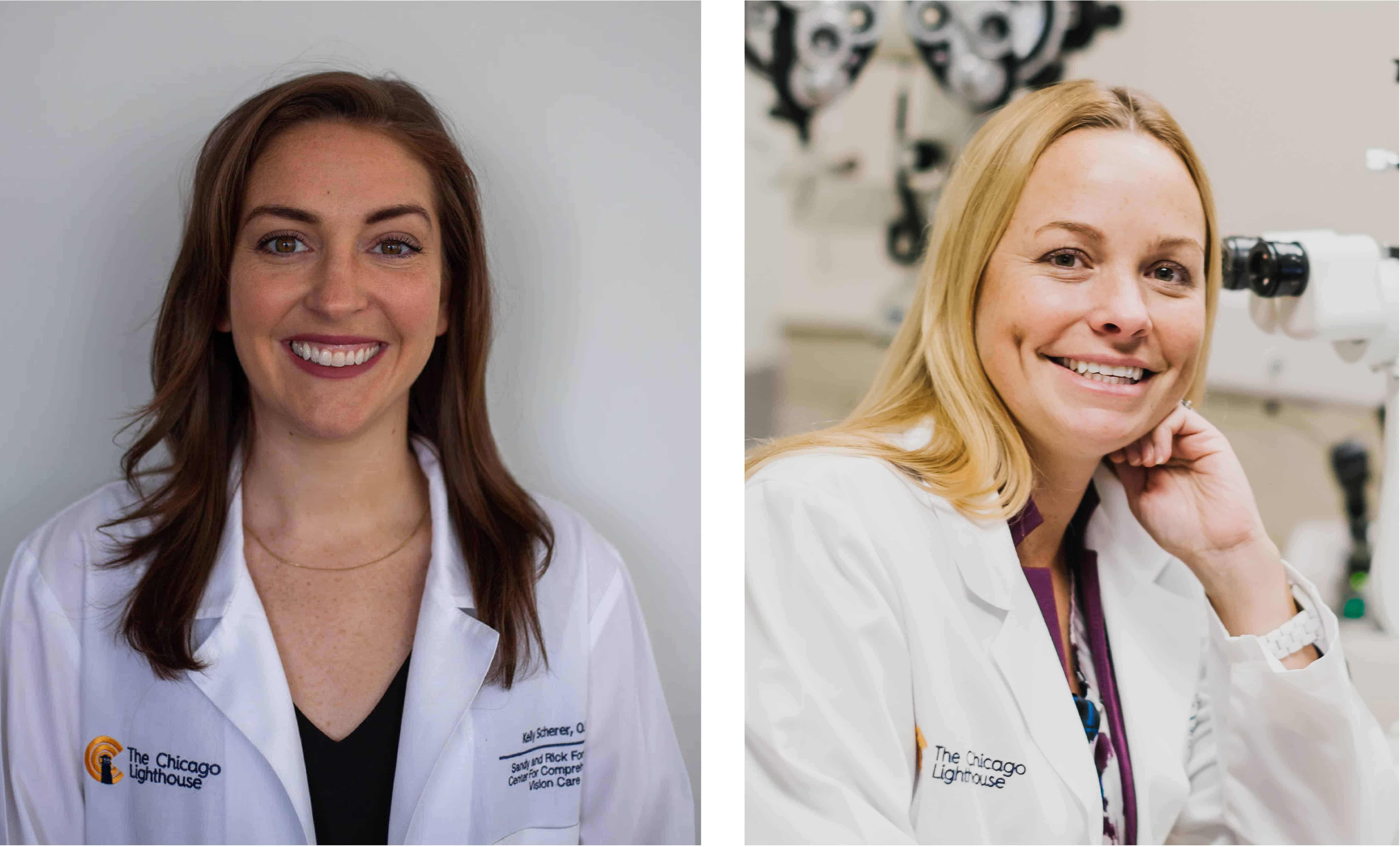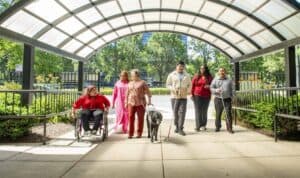Lighthouse Q&A: What to expect at a Low Vision Exam

Knowing what to expect at a low vision exam helps doctors and patients get the most out of their appointment.
Whether our patients have had low vision since birth or have been recently diagnosed with a visual impairment, they often come to The Chicago Lighthouse’s Sandy and Rick Forsythe Center for Comprehensive Vision Care with questions and even some anxiety. In this Q&A, Chicago Lighthouse Optometrists Dr. Kara Crumbliss and Dr. Kelly Scherer answer some of the questions patients may have.

Dr. Kelly Scherer (left), and Dr. Kara Crumbliss (right)
Why might a patient be referred to The Lighthouse’s Low Vision Clinic?
Dr. Scherer: Most patients are sent to us by their optometrist or ophthalmologist because they are experiencing difficulty with daily tasks due to their vision, such as reading, writing, or watching TV. We see an extensive range of patients with different levels of vision loss. Understanding what they want from their vision helps us provide individualized assessments and recommendations to every patient.
How will a Lighthouse low vision exam differ from a more “traditional” appointment?
Dr. Crumbliss: At a routine optometrist or ophthalmologist visit, the appointment is typically focused on eye health and eye disease management. At a low vision visit, the exam is focused on the person’s day-to-day visual function and working to find optical and technology aids and adaptations to improve that visual function. We evaluate different devices, such as traditional and electronic magnifiers, and discuss other adaptations, including large print and audiobooks, bump dots, and bold pens and paper.
Dr. Scherer: The low vision exam is a functional assessment of vision. We evaluate many different aspects of vision, including visual acuity, visual field, contrast sensitivity, and reading ability. The low vision exam is goal-oriented; we want to understand what you want to do, whether that is reading better, seeing faces more clearly, or improving vision for driving. Our doctors spend time discussing a patient’s individual needs and design an individualized rehabilitation plan.
What information can I expect after my exam?
Dr. Crumbliss: After your exam, you can expect a low vision rehabilitation plan that will include recommended devices and services and follow-up instructions. Completing the plan may take a few visits over several months and sessions to address all goals and improve accordingly. You may also receive documentation of the level of your vision loss and whether you qualify as visually impaired or legally blind. Quantifying your vision loss can help determine your eligibility for other services.
Do I have to bring anything to my appointment?
Dr. Scherer: I always tell my patients the more information, the better. I want to get to know my patients from a medical and personal standpoint. They should bring medical records pertaining to their eye disease, their overall medical history, medications and ID, and insurance card. I also like to see what adaptive equipment patients are currently using, such as glasses or magnifiers, and whether they like them or not. It’s just as helpful to see what doesn’t work as what does. Lastly, I like to see what types of materials patients have trouble reading or activities they have trouble doing. This helps me define their low vision goals.
How can I take advantage of some of the other services The Lighthouse provides?
Dr. Crumbliss: Once you complete a low vision exam, the doctor will recommend other services. If you are seeking employment, they may refer you to our Employment Services department. If you are a student, we might recommend our Children’s Development Services, Scholarship Program, or Youth Transition Program. If you are a Senior, we might recommend our programming for older adults, which is currently virtual, but includes programming like a book club, chair exercises, and art exploration.
Low Vision appointments are now available in person and remotely. For more information or to schedule a low vision exam, please call: (312) 997-3686 during normal business hours.

